Why Is My Tattoo Raised? Is It Normal & How To Fix It?
Flatten your bumpy tattoos with easy and effective tattoo care tips.
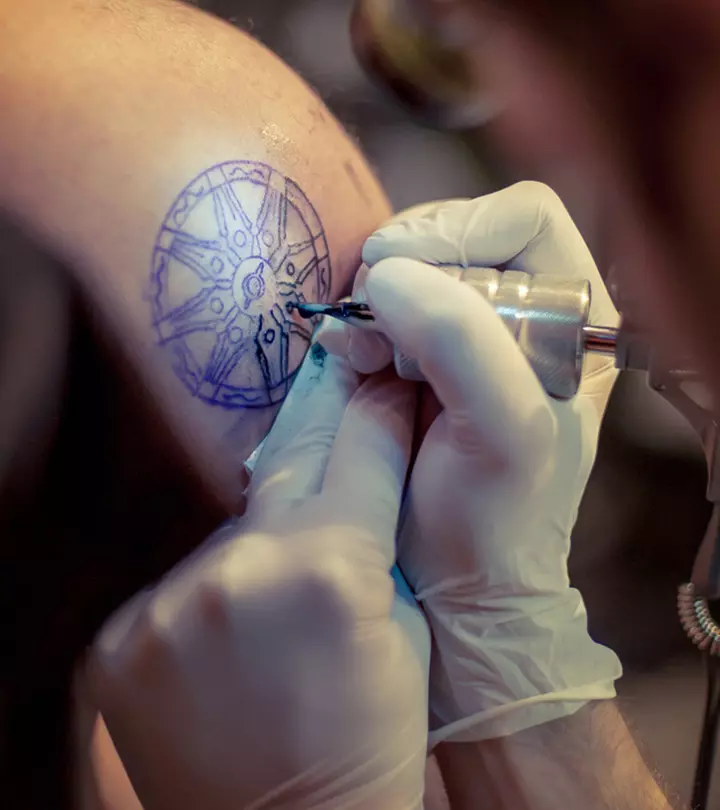
Image: Shutterstock
Discovering a raised texture on your freshly inked tattoo can be quite alarming! “Why is my tattoo raised?” remains a common question among individuals encountering this issue. Turns out, these raised tattoos can pop up for a bunch of reasons. Knowing why it happens can help you find the right fix. Your tattoo can react in various ways depending on the reason, from allergic reactions to weather conditions
This article will help you find the answers to some of the most common worries associated with getting a raised appearance tattoo. Continue reading to find out the causes of it as well as the treatments to flatten the raised tattoo.
In This Article
What Is A Raised Tattoo?

When the inked design creates a raised or bumpy texture on the skin’s surface, it is called a raised tattoo. This is a common occurrence that happens due to various reasons, including the technique used by the tattoo artist, the type of ink, allergic reaction, infection, or scarring from poor technique.
In some cases, the body’s natural healing response may also cause raised-like textures in the tattooed area as it tries to repair itself after being inked.
However, if the raised area becomes overly inflamed, painful, or shows signs of infection, it is important to consult a dermatologist or a healthcare professional. Read on to know more about what causes raised tattoos so that you can determine if it is a normal part of the healing process or if it necessitates consultation.
Key Takeaways
- Raised tattoos can result from ink allergies, infections, poor tattoo techniques, sun exposure, weather, health conditions, and skin issues.
- It is best to seek professional help if you notice infection signs or persistent discomfort to get a proper diagnosis and treatment.
- Topical creams, oral medications, covering from the sun, and regular moisturizing may help minimize the raised appearance and inflammation.
- To prevent the occurrence of a raised appearance of a fresh tattoo, protect from the sun, avoid friction, and follow aftercare instructions from a skilled tattoo artist.
Why Is My Tattoo Raised? What Causes It?
Your tattoo could be raised due to several factors, from allergic reactions to sun exposure. Sometimes, you may experience a raised and itchy tattoo soon after you get it inked or sometimes a few days after. In rare cases, it can even become bumpy and raised after a few years. The most common causes of a raised tattoo are –
1. Allergic Reaction
An ink allergy is the most common culprit in tattoo raising. Tattoo inks consist of colorants combined with various additional components such as water, alcohol, solvents, preservatives, and binders (1). These ink particles frequently contain impurities that result from the manufacturing process of the colorants. This may cause allergic reactions to your skin, leading to raised, irritated, and itchy skin. A tattoo allergy may occur right after you get inked or a few days later. Additionally, some people may also be allergic to the latex gloves worn by the tattoo artist. Allergic reactions to latex may cause skin rashes, swelling, breathing issues, and severe allergic reactions (2).
Debra, a lifestyle blogger, shares her experience of getting a raised tattoo due to allergic reactions caused by the tattoo ink. She had allergic contact dermatitis due to the black dye that had been added to the henna to make the tattoo darker and longer lasting. She writes, “It took two doctors and a dermatologist to find the correct ointment to make the welt go down and the itchiness stop (i).”
2. Infection
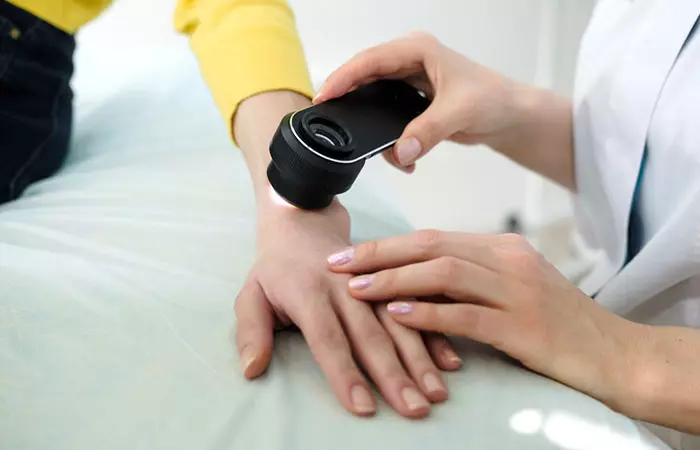
When a tattoo needle pierces the skin, it can bring in various germs and bacteria if it is not clean or shared between people. This could lead to different infections. Germs might also enter the body while the tattoo is healing (3). If your healing tattoo starts looking swollen, red, and hurts a lot, it might be infected and needs medical attention. An infected tattoo can cause raised, inflamed skin. Signs of infection, apart from redness, include warmth, pus or oozing, and feeling feverish and generally unwell. If you notice these around your tattoo, seek medical help.
 Quick Tip
Quick Tip3. Scarring
If a tattoo artist uses poor technique, it can lead to skin injuries and scarring of your skin tissue, resulting in raised skin like a hypertrophic scar. This skin tissue damage often occurs if they penetrate too deeply into the skin’s dermis layer or apply excessive pressure when tattooing (3). Such errors can cause scarring in the tattoo’s design, creating a tough, raised area that will not disappear even if you remove the ink with laser treatments. Deeper tattooing might result in rough healing, increased risk of tattoo scabbing, ink spreading under the skin, and tattoo blowout, where the ink particles spread beyond the intended lines.
4. Sun Exposure
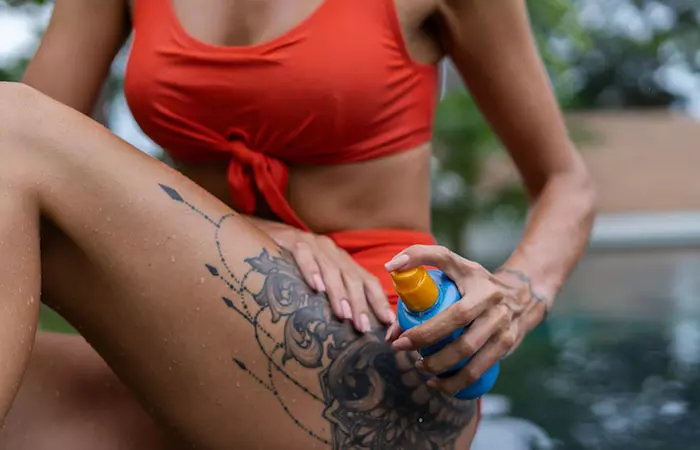
Excessive exposure of tattooed skin to sunlight can contribute to a raised and itchy tattoo. Ultraviolet (UV) light, besides damaging the skin, can trigger inflammation and react with certain Tattoo inks , causing an inflammatory reaction around the tattoo. It could be linked to the tattoo pigment reactions or tiny particles in black tattoos. In a study involving 467 beachgoers in Denmark with tattoos, 31.3% had tattoos, and 144 participants with 301 tattoos were included (4). About 42% reported problems with their tattoos, with 52% of these issues being sun-related, such as swelling, itching, and redness.
To protect your tattoo, it is important to shield it from the sun’s rays by wearing protective clothing or applying sunscreen with a high SPF when exposed to sunlight for extended periods. This not only helps prevent potential allergic reactions but also preserves the tattoo pigment, preventing it from fading prematurely.
5. Weather Conditions
During summer, higher humidity may cause your tattoo to swell or stretch. Conversely, the cold weather can dry out tattooed skin, leading to tattoo rashes, itching, and raised areas. Hot and humid weather commonly triggers raised tattoos as it affects body temperature, leading to skin irritation and swelling. Avoid direct sunlight exposure, opt for loose clothing to allow the skin to breathe in hot conditions, and keep your dry skin moisturized, reducing the likelihood of this reaction.
 Quick Tip
Quick Tip6. Health Conditions
Tattoos may trigger unexpected reactions, especially in individuals with specific health conditions like high blood pressure or autoimmune disorders such as Sarcoidosis, leading to raised skin around tattoos (5). According to anecdotal evidence, these conditions might prompt the body to respond differently to tattoo ink, causing an immune reaction that inflames and raises the skin. It is generally advisable to avoid tattoos with exceptionally high blood pressure due to potential complications, such as dizziness, vomiting, anxiety, and more, arising from increased blood pressure during the process.
7. Skin Conditions
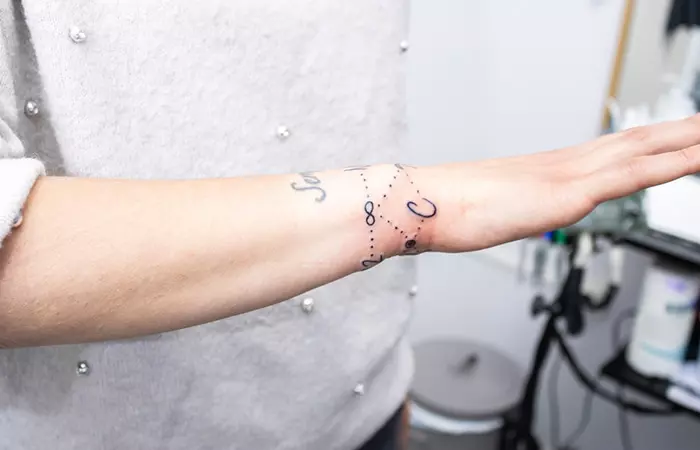
The main skin reactions to tattoos include temporary inflammation caused by skin conditions such as eczema or psoriasis occurring in the tattooed area (6). If you have prior skin conditions like eczema or psoriasis, it may worsen due to a tattoo, leading to increased inflammation. Some dry skin issues may flare up due to the tattoo process itself, triggered by needle poking or the ink during healing. Consult a dermatologist before getting inked if you have any skin issues, as specific aftercare products tailored to your skin type can help reduce the raised or swollen appearance of the tattoo.
Understanding the cause and common factors that lead to a raised appearance of a tattoo can help determine the proper treatment for it. Scroll down to read more about some of the general approaches to flattening a raised tattoo.
How To Flatten A Raised Tattoo
A raised tattoo may or may not remedy itself with time. But, you cannot be sure about it. Sometimes, you may need specialized treatment and proper tattoo aftercare to get rid of the itchy skin, swelling, and tattoo raising.
From oral medications to topical treatments, here are a few ways to treat a raised tattoo:
1. Seek Professional Help
If your skin is raised and you experience other symptoms like redness, pain, or itching, it is best to consult with a dermatologist. The dermatologist can help you treat the skin issue after a proper diagnosis of the skin reaction. A skilled tattoo artist may also help you with aftercare instructions and products.
2. Apply Topical Creams
Topical treatments can help minimize the appearance of a raised tattoo. These creams often contain ingredients like hydrocortisone, effective in reducing both inflammation and itching (7). However, topical steroid ointments may require a doctor’s prescription.
3. Consume Oral Medications
If the tattoo raising is caused due to allergic reactions, then your dermatologist may prescribe antihistamines. Antihistamines are used in the management of allergic conditions (8). Over-the-counter antihistamines can be used to get some relief from the symptoms of allergic skin reactions.
4. Cover The Tattoo
Keep the irritated skin covered from sun exposure until the reaction subsides. Wear sunscreen and protective clothing to keep it away from harmful environmental triggers. Also, there is a traditional method to cover it with black ink. This technique blocks UV rays from reaching the irritated skin, potentially easing the allergic reaction to tattoo ink.
5. Moisturize The Skin
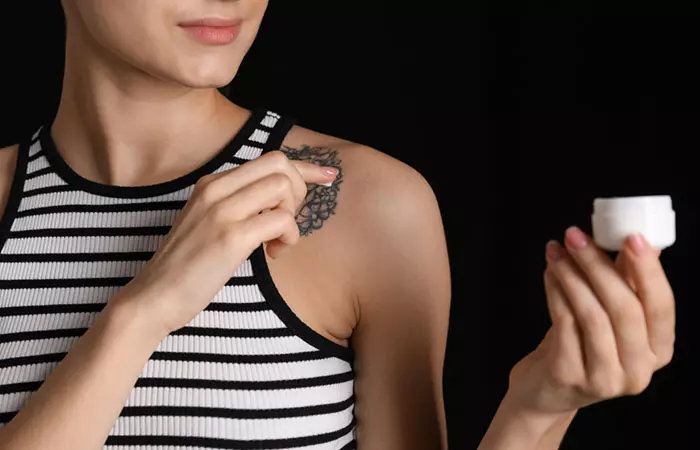
Rubbing the raised area of your tattoo with a moisturizer or special aftercare product may help make the skin smoother and help it heal better. Keeping the tattooed skin hydrated by using a moisturizer regularly may also make the raised part less noticeable. Anecdotal claims suggest trying gentle home remedies like aloe vera gel or witch hazel, which can potentially calm the skin and may help with raised tattoos. However, always do a patch test on a small skin area first to ensure there are no adverse reactions before using any of these natural remedies on your tattooed skin. However, you need to be gentle and avoid pressing too hard or rubbing too much as it could make things worse.
A raised tattoo can occur from diverse factors, including skin injury, allergic reactions, skin tissue damage, infection, and tattoo healing processes. Moreover, sun exposure and adverse weather conditions may also cause skin reactions around tattoos like inflamed or itchy skin. Those with health conditions or pre-existing skin issues should consult dermatologists before getting inked to minimize potential risks. To address raised tattoos, there are several proper care options such as topical treatments, oral medications, and protective measures like covering the tattooed area and moisturizing. However, it is best to consult a skilled tattoo artist for aftercare instructions.
Frequently Asked Questions
What should I do if my tattoo becomes raised after years?
It is essential to know the trigger behind your tattoos rising several years later. It could be due to allergic reactions, skin irritations, or weather changes. It is best to consult a dermatologist to understand the cause to get appropriate and prompt care.
Is it normal for a tattoo to be raised?
It is normal for a fresh tattoo to have a raised appearance during its healing process. Usually, it gets raised in the morning after you get inked and gradually diminishes each day until your skin becomes entirely smooth. However, if you notice a prolonged raised texture on your skin or tattoo bubbling, you should consult a dermatologist.
Are raised tattoos harder to remove?
Raised tattoos might be a bit more challenging to remove compared to flat ones. The texture and structure of scar tissue can sometimes make the removal process a bit difficult. However, it is best to consult a professional tattoo removal specialist to know more about it.
Are certain body areas more prone to raised tattoos?
Yes, certain body areas tend to be more prone to raised tattoos due to the skin’s sensitivity and thickness in those regions. Areas with sensitive skin like the chest, wrists, ankles, and areas with more nerve endings may be more likely to develop raised tattoos.
Can excessive swelling cause my tattoo to be raised?
Swelling is a natural part of the healing journey for tattoos. This swelling, along with the body’s effort to contain ink in the deeper skin layers, may lead to redness or a slightly raised appearance in your tattooed skin.
Can tight clothing or friction cause my tattoo to be raised?
The constant rubbing or pressure from tight clothing against a fresh or healing tattoo may irritate the skin, leading to inflammation or a raised appearance in the tattooed area.
Should I avoid scratching if my tattoo feels itchy and raised?
Yes, it is advisable to avoid scratching a raised and itchy tattoo. Scratching may further irritate the skin, potentially causing inflammation, delayed healing, or even an increased risk of infection.
Illustration: Why Is My Tattoo Raised? Is It Normal & How To Fix It?
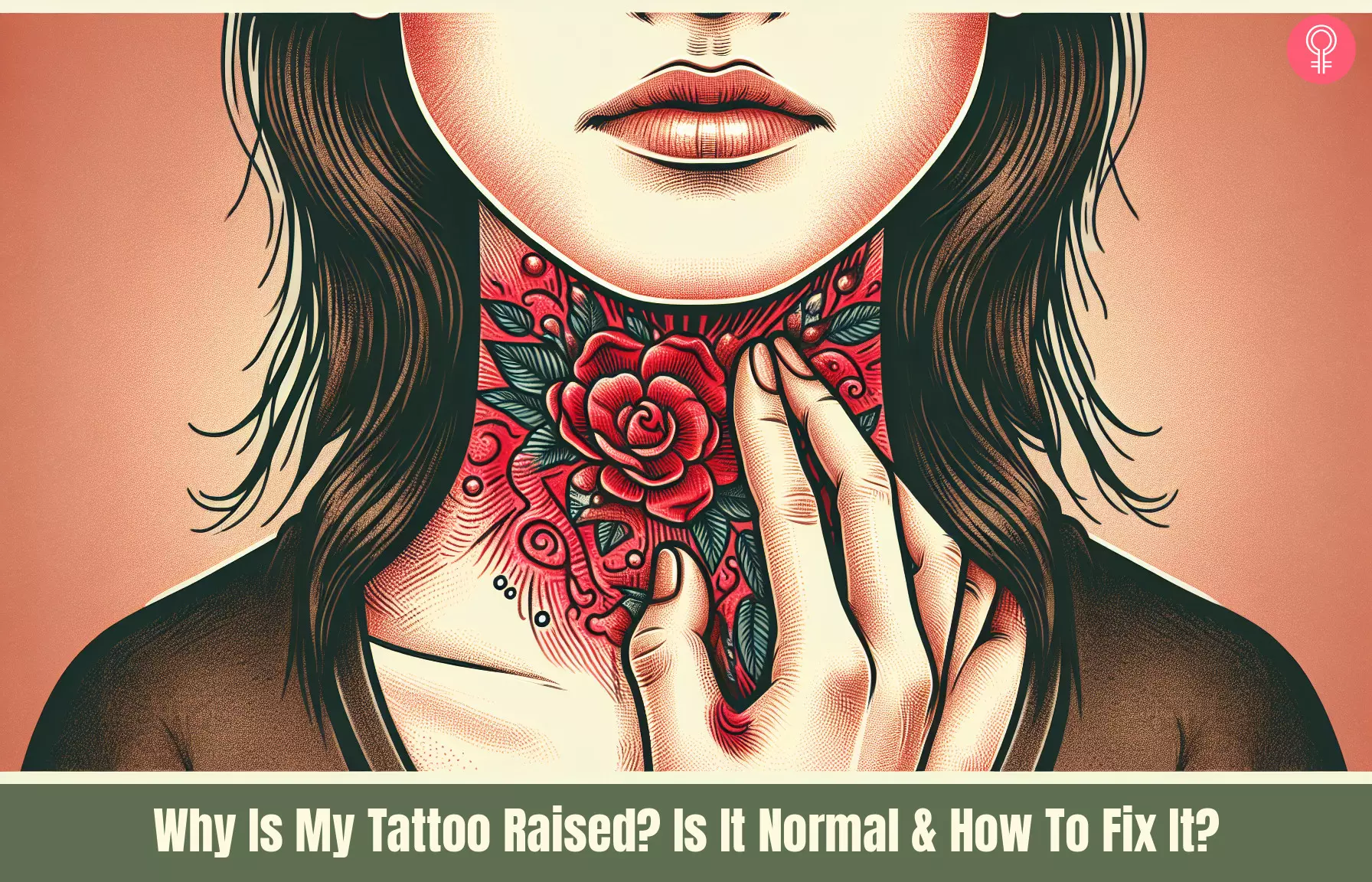
Image: Dall·E/StyleCraze Design Team
Bumps and itchiness on the tattoo can occur even after it is healed. So, how do you treat it? Discover effective treatments and care tips in this informative video. Watch it now!
Personal Experience: Source
StyleCraze's articles are interwoven with authentic personal narratives that provide depth and resonance to our content. Below are the sources of the personal accounts referenced in this article.
(i) My Mexican Tattoo, Part 2https://shewhoseeks.blogspot.com/2012/02/my-mexican-tattoo-part-2.html
References
Articles on StyleCraze are backed by verified information from peer-reviewed and academic research papers, reputed organizations, research institutions, and medical associations to ensure accuracy and relevance. Read our editorial policy to learn more.
- Tattoo allergy. Can we identify the allergen?
https://www.sciencedirect.com/science/article/abs/pii/S075549822030035X?via%3Dihub - Latex allergy: diagnosis and management
https://pubmed.ncbi.nlm.nih.gov/15327474/ - Tattoo complaints and complications: diagnosis and clinical spectrum
https://karger.com/books/book/174/chapter/5110237/Tattoo-Complaints-and-Complications-Diagnosis-and - Photosensitivity and photodynamic events in black red and blue tattoos are common: A ’Beach Study’
https://pubmed.ncbi.nlm.nih.gov/23350817/ - Sarcoidosis on tattoos: a review of the literature from 1939 to 2011
https://pubmed.ncbi.nlm.nih.gov/24071880/ - Tattoo-associated skin reaction: the importance of an early diagnosis and proper treatment
https://www.ncbi.nlm.nih.gov/pmc/articles/PMC4132403/ - Topical hydrocortisone 17-butyrate 21-propionate in the treatment of inflammatory skin diseases: pharmacological data clinical efficacy safety and calculation of the therapeutic index
https://pubmed.ncbi.nlm.nih.gov/27183704/ - Antihistamines and allergy
https://www.ncbi.nlm.nih.gov/pmc/articles/PMC5895478/
Read full bio of Brik Rangel
Read full bio of Shreya Mukherjee
Read full bio of Anjali Sayee
Read full bio of Gazala Firdos Ansari





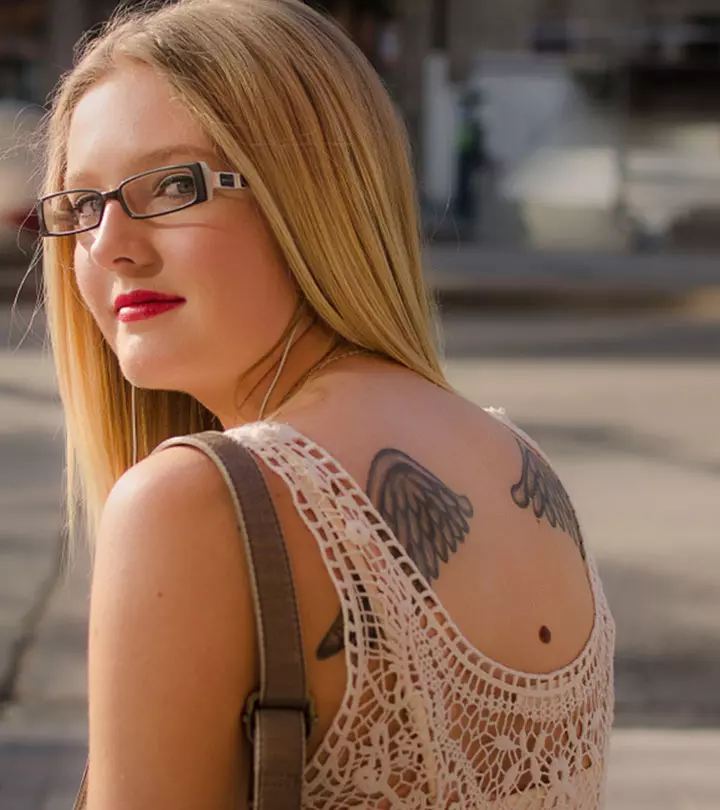
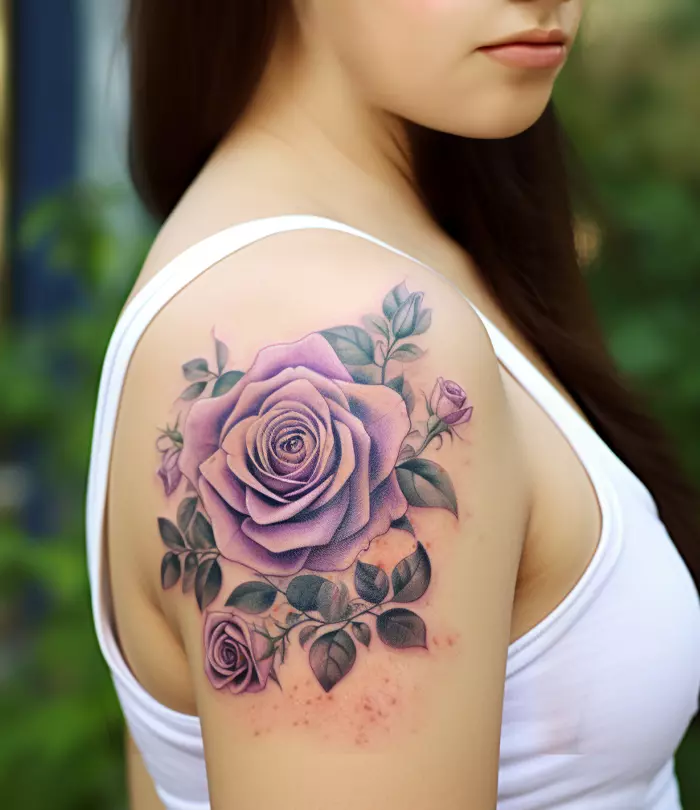
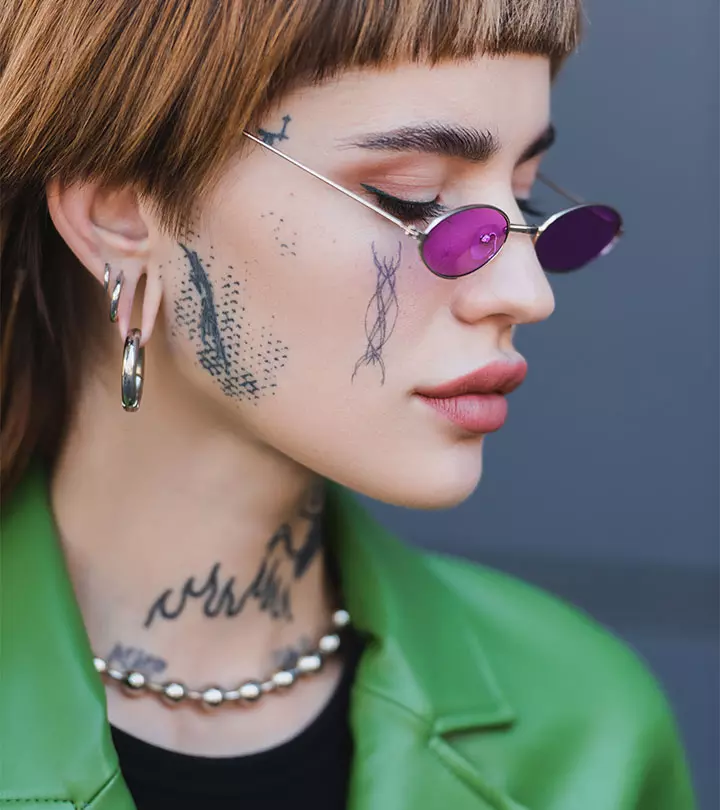
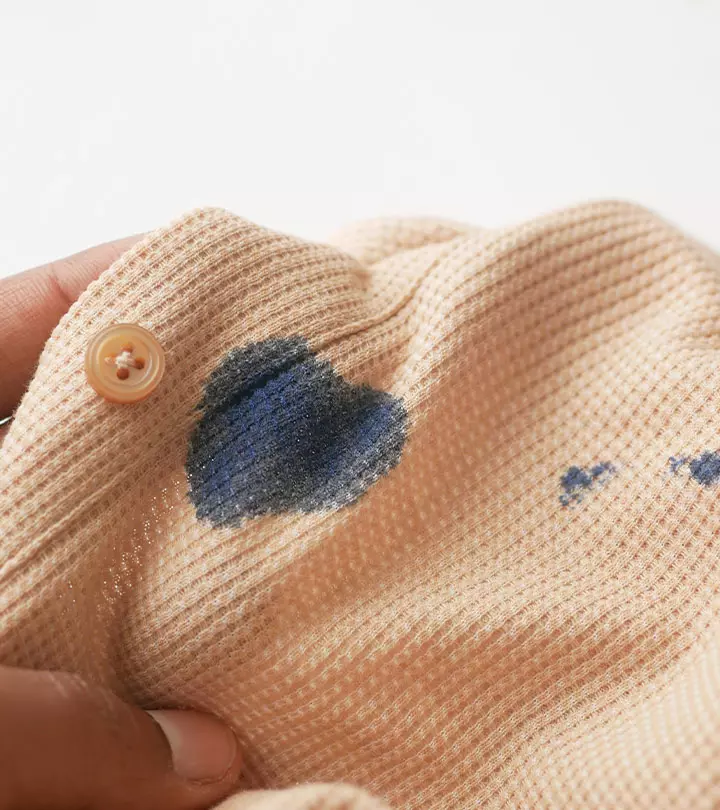

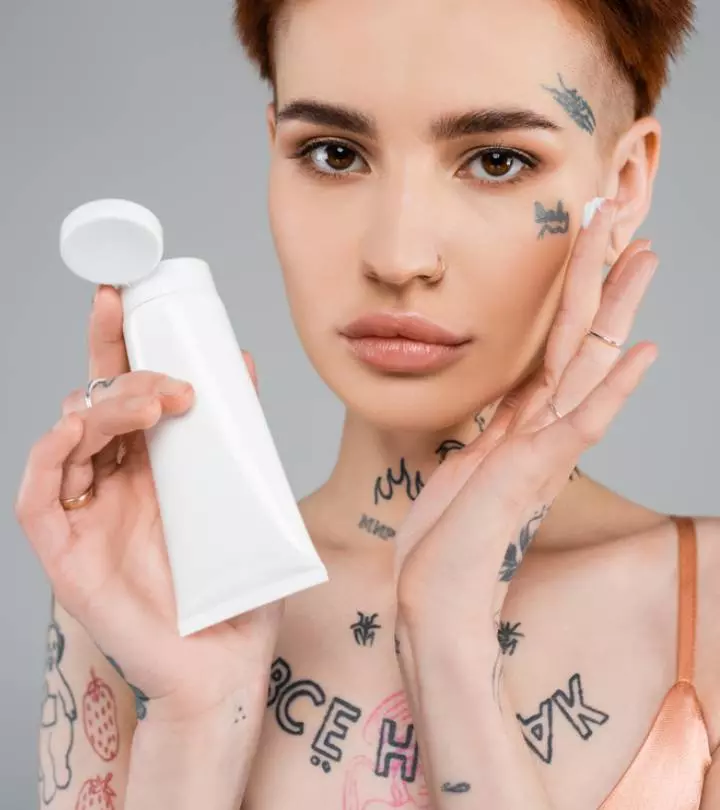
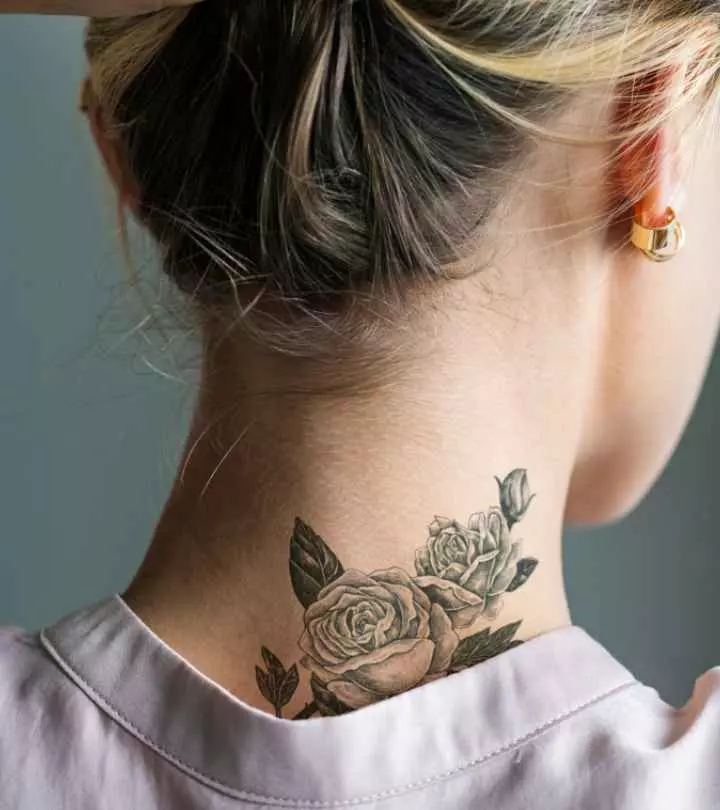

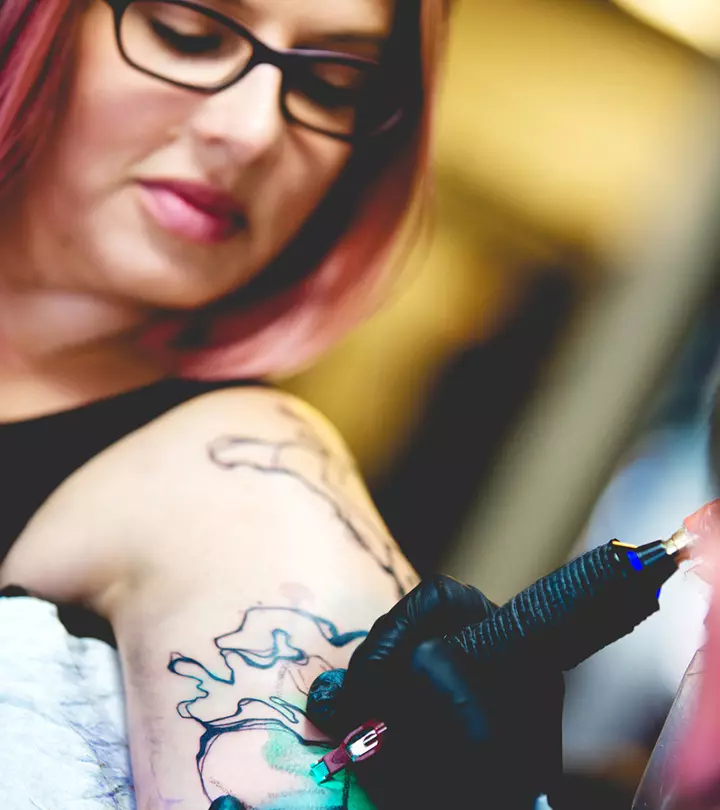
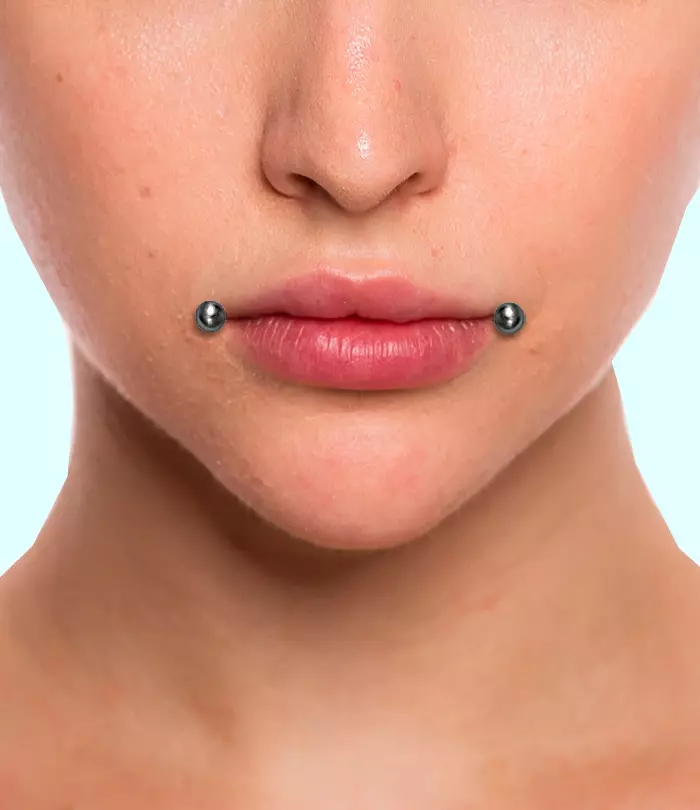
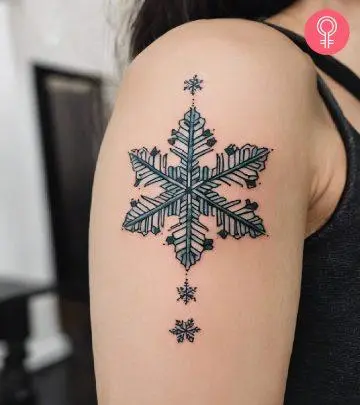
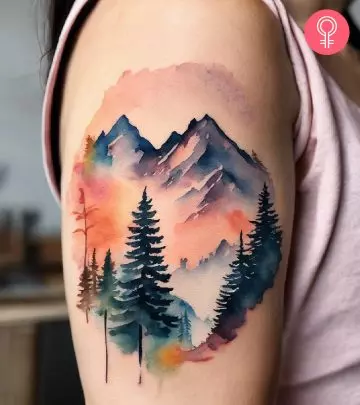
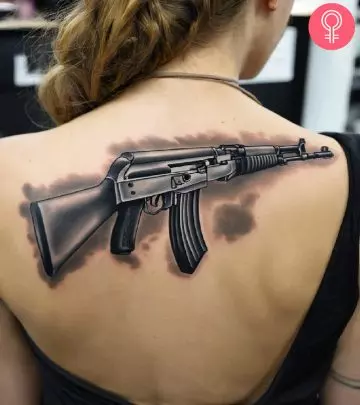
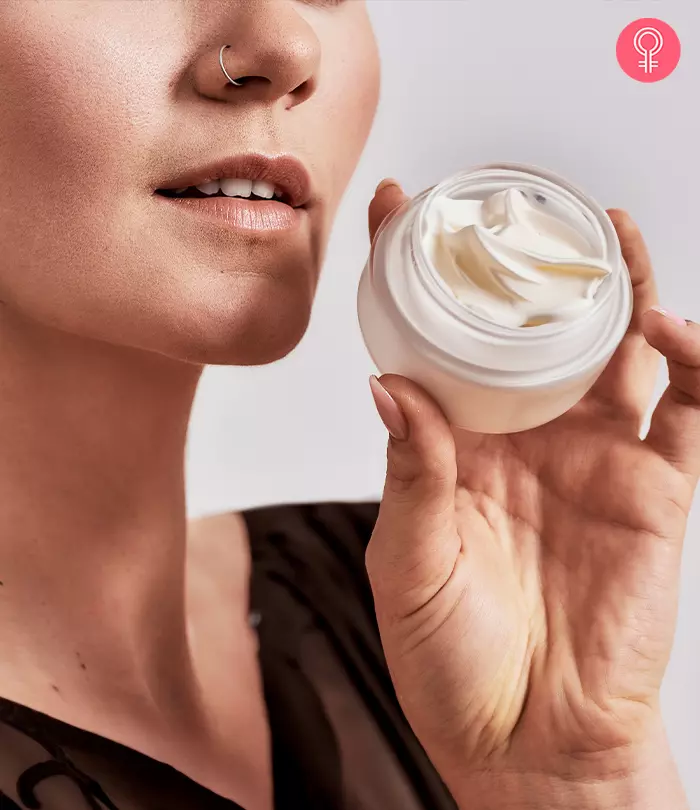

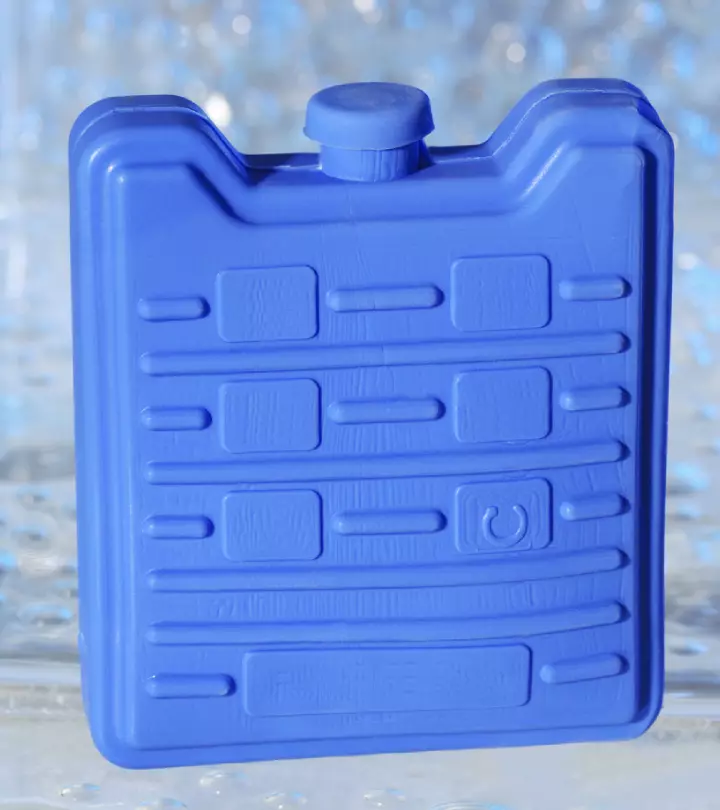

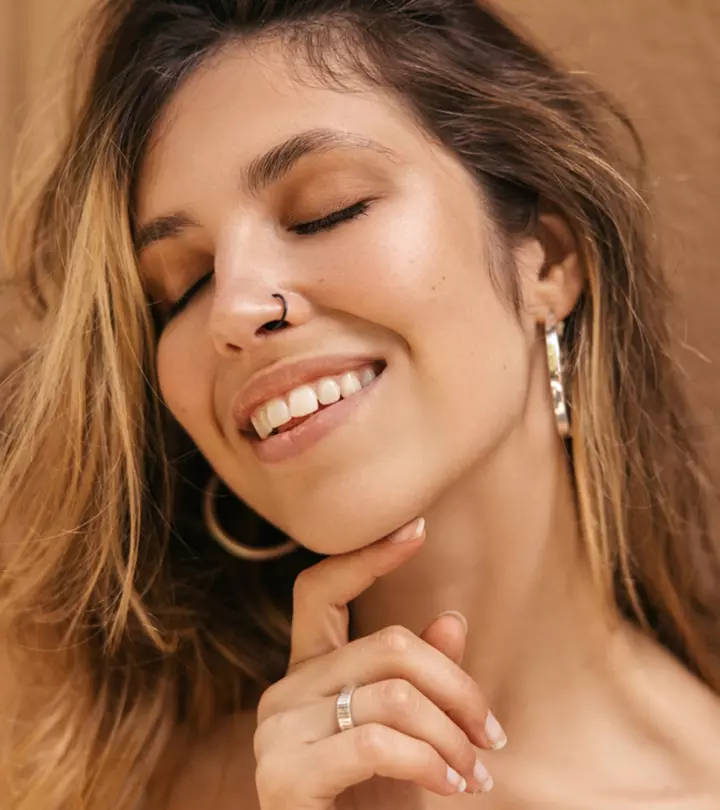
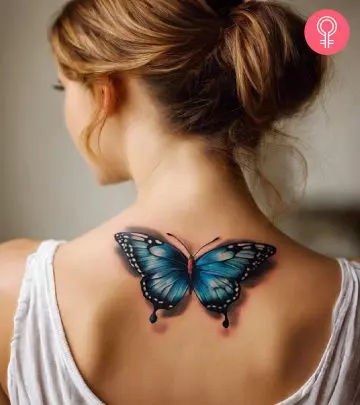
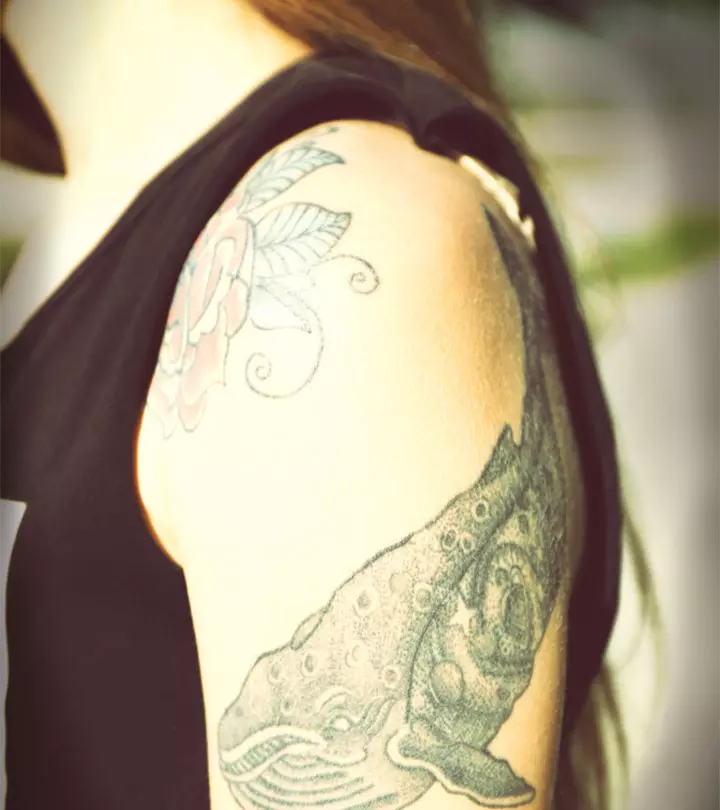
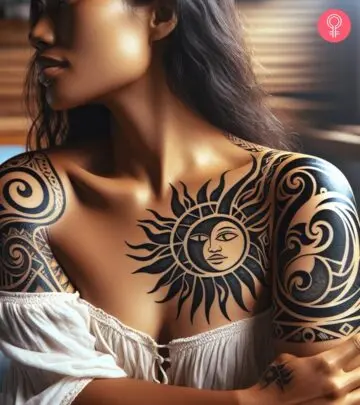
Community Experiences
Join the conversation and become a part of our empowering community! Share your stories, experiences, and insights to connect with other beauty, lifestyle, and health enthusiasts.